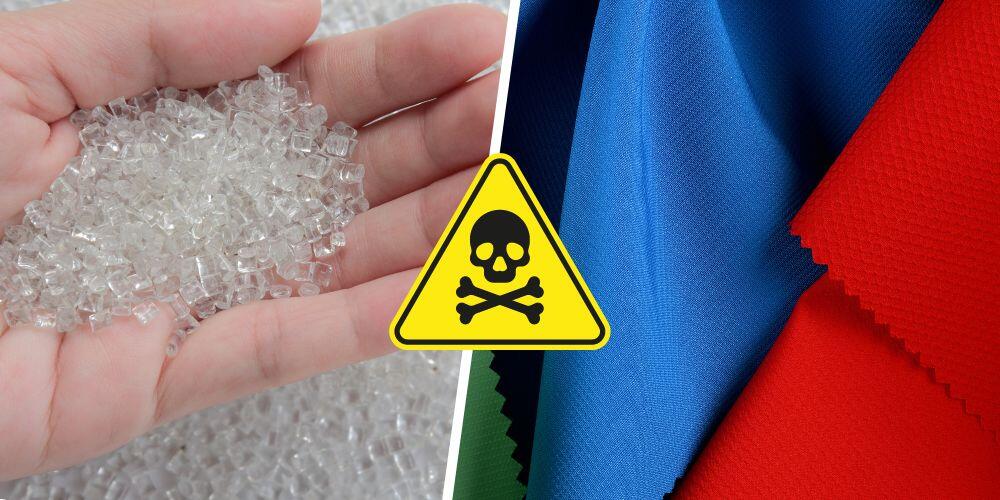16 Reasons Why you should Never Wear Polyester Fabric
1. Environmental Impact
FACTS: Polyester is a petroleum-based synthetic fiber that requires significant energy to produce and releases microplastics with each wash.
100% Lady – “Every time I wash polyester, I’m literally sending thousands of plastic particles into our water systems. As someone who’s spent decades watching environmental degradation, I can’t justify contributing to that. Our oceans don’t need more plastic – they need us to make better choices.”
2. Poor Breathability
Traps heat and moisture against the skin, making it uncomfortable in warm weather or during physical activity.
100% Lady: “Listen, at 49, I’ve earned the right to be comfortable! I don’t have time to feel like I’m wrapped in plastic wrap when I’m trying to get through my day. Natural fibers let my skin breathe the way nature intended.”
3. Skin Irritation
Can cause rashes, itching, and allergic reactions in people with sensitive skin.
100% Lady: “I’ve spent too many years learning what works for my body to compromise my skin health. Our skin is our largest organ! Why would I wrap it in something that might trigger inflammation when there are gentler alternatives that honor my body?”
4. Odor Retention
Holds onto body odors more stubbornly than natural fibers.
100% Lady: “In my community, we’ve passed down wisdom about personal dignity for generations. Nothing dignified about clothes that trap odors! Natural fibers have served us well for thousands of years before these synthetics came along.”
5. Static Electricity
Generates more static cling than natural fabrics.
100% Lady: “I don’t have time to be walking around looking like I stuck my finger in an electrical socket! Between my professional life and community commitments, I need clothing that behaves itself.”
6. Flammability
Melts rather than burns when exposed to flame, which can cause severe burns and adhere to skin.
100% Lady: “This is genuinely terrifying. If you’ve ever seen burn injuries up close, you know why this matters. Polyester doesn’t just burn – it melts INTO your skin. As someone who lights Shabbat candles weekly, I’m not bringing that risk into my home.”
7. Durability Issues
Shows wear faster than some natural fibers and can pill, fade, or lose shape.
100% Lady: “In my culture, we value quality and longevity. My grandmother taught me to invest in things that last. These fast-fashion polyester pieces look shabby after a few washes – that’s not honoring resources or my hard-earned money.”
8. Sustainability Concerns
Extremely slow to decompose (50+ years) in landfills.
100% Lady: “I think about the world my nieces and nephews will inherit. What legacy am I leaving if my clothing choices are still sitting in landfills generations from now? As a naturalist, I understand that nothing in nature creates waste that can’t be broken down.”
9. Chemical Production
Manufacturing involves potentially harmful chemicals.
100% Lady: “The communities most harmed by chemical manufacturing plants are often Black and brown communities like mine. Environmental justice matters. When I choose natural fibers, I’m refusing to support industries that poison vulnerable communities.”
10. Sweat Promotion
Non-absorbent nature creates a slick layer between skin and fabric.
100% Lady: “There’s nothing dignified about feeling like you’re wearing a sweat lodge! Our bodies were designed to perspire and regulate temperature naturally. Why would I interfere with that wisdom by wearing petroleum products?”
11. Temperature Regulation Problems
Doesn’t adapt to body temperature, making it either too hot or too cold.
100% Lady: “At my age, I’ve earned climate control in my clothing! Cotton keeps me cool in summer and wool keeps me warm in winter. My ancestors knew what they were doing with natural fibers long before polyester was invented.”
12. Ethical Considerations
Production often involves poor labor conditions and environmental damage.
100% Lady: “As a Black woman, I understand what exploitation looks like. The polyester industry often relies on underpaid labor in developing countries and pollutes their local environments. My faith and my heritage call me to make choices that don’t harm others.”
13. Petroleum Dependency
Relies on non-renewable fossil fuels for production.
100% Lady: “We’re fighting pipeline expansions and oil drilling while wearing clothes made from the same crude oil? That’s cognitive dissonance.”
14. Limited Aging Quality
Doesn’t develop character or soften pleasantly with age like cotton, wool, or leather.
100% Lady: “Like me, my clothing should get better with age! There’s beauty in the way natural fibers develop character and tell stories. Polyester just looks tired and worn out – and that’s not how I plan to age!”
15. Less Versatile
Harder to modify, repair, or upcycle compared to natural fibers.
100% Lady: “In my community, we’ve always found ways to repurpose and extend the life of things. My grandmother could transform an old cotton dress into quilts, children’s clothes, or cleaning rags. Polyester? Once it’s done, it’s just waste. That doesn’t align with the values of resourcefulness I was raised with.”
16. Poly means “many” and the bible says fabric should be of Single Origin
100% Lady: “Thou shalt not wear a garment of divers sorts, as of woollen and linen together.” – Deuteronomy 22:11; we shouldn’t ignore the commandments in the bible if we say we follow them. It’s important to try your very best to wear natural clothes that use materials of natural origins and not to mix them to follow the commandments of the creator.
For all these reasons, you should do your best not to wear or buy polyester to the best of your power. I know it can be hard, but 100percentnaturals.com is here to help you. See the shop.

